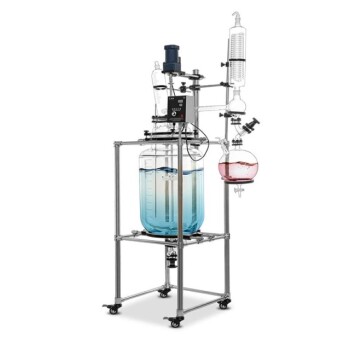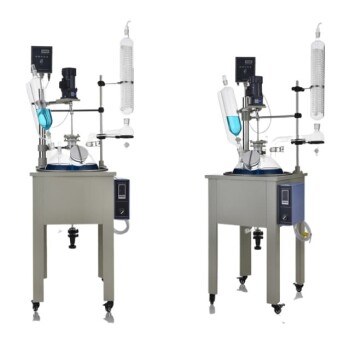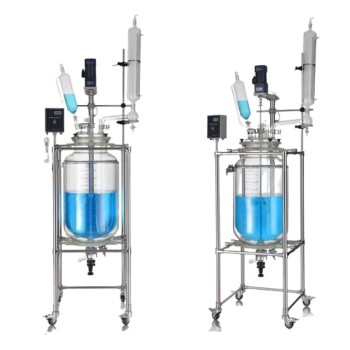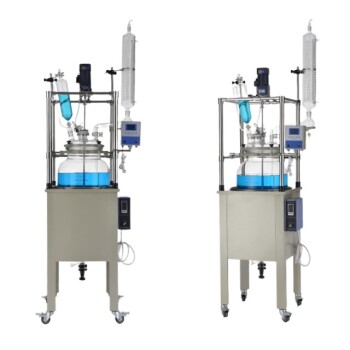Distillation plays a critical role in the pharmaceutical industry, primarily due to its ability to separate, purify, and concentrate compounds with high precision. It is used for solvent swapping, removing volatile impurities, drying, and creating concentrated solutions for drug formulations. Key applications include the production of antibiotics like penicillin, purification of vitamins such as vitamin E, and the formulation of topical ointments and cough syrups. Molecular and short-path distillation are particularly valuable for handling heat-sensitive and high-boiling-point materials, ensuring the purity and efficacy of pharmaceutical products. This process is essential for producing safe, effective, and high-quality medicines.
Key Points Explained:
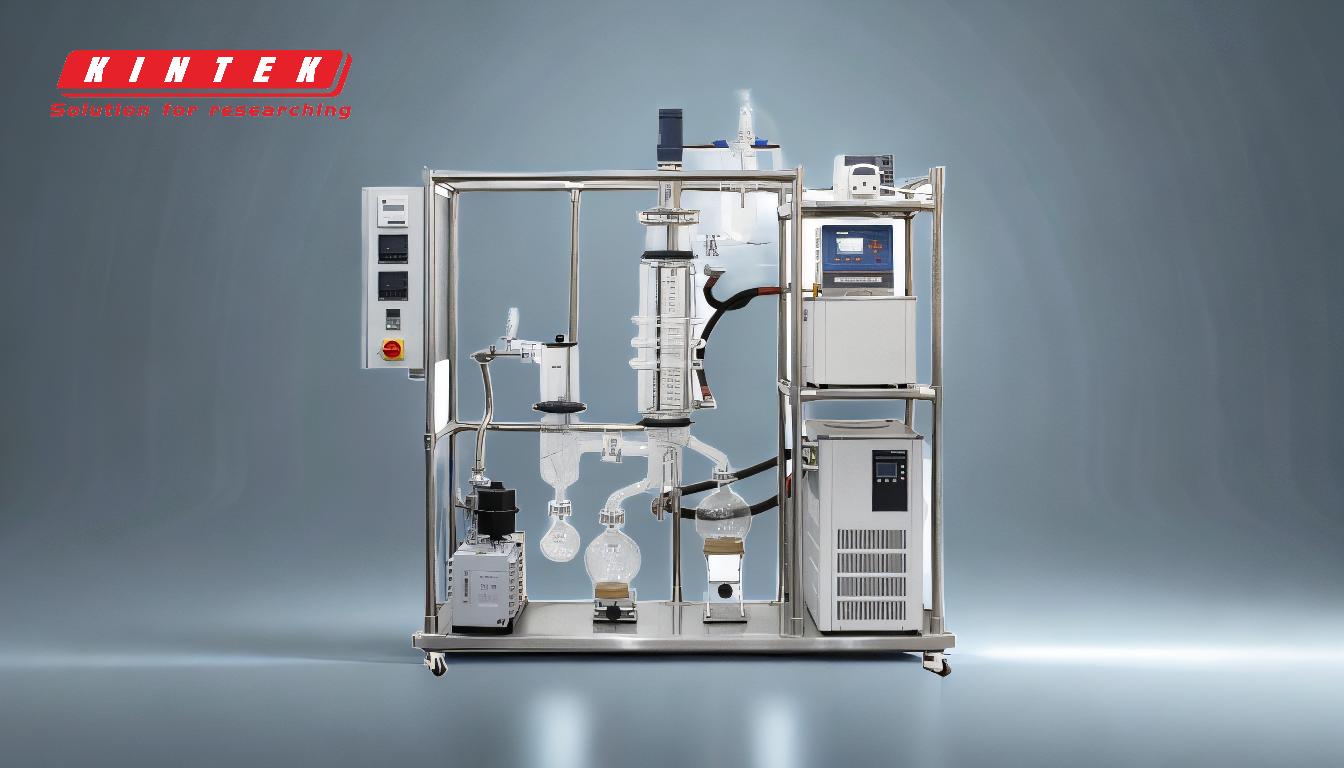
-
Purification of Active Pharmaceutical Ingredients (APIs):
- Distillation is used to purify APIs, ensuring they meet stringent quality standards. For example, antibiotics like penicillin and steroids are purified using molecular distillation to remove impurities and volatile contaminants.
- This process is critical for maintaining the efficacy and safety of pharmaceutical products.
-
Solvent Swapping and Concentration:
- Distillation allows for solvent swapping, where one solvent is replaced with another to achieve the desired formulation. This is particularly useful in creating concentrated solutions for drug delivery systems.
- It is also used to dry pharmaceutical substances, removing water or other solvents to stabilize the final product.
-
Production of Vitamins and Nutraceuticals:
- Short-path distillation is widely used to produce vitamins like vitamin E, which is essential in skincare and pharmaceutical formulations.
- It is also employed in the purification of nutraceuticals, ensuring high purity and bioavailability.
-
Formulation of Topical Products:
- Distillation is integral to the production of topical ointments, creams, and lotions. It helps incorporate active ingredients into the base formulation, ensuring even distribution and stability.
- For example, it is used to dissolve pharmaceutical substances in active solutions for topical applications, including pet care products.
-
Removal of Volatile Impurities:
- Molecular distillation is particularly effective in removing volatile impurities from drug formulations. This is crucial for heat-sensitive compounds that degrade at high temperatures.
- It is also used to purify high-boiling-point solvents like glycols and polyols, which are common in pharmaceutical manufacturing.
-
Applications in Polymer and Intermediate Production:
- Distillation is used to produce polymer intermediate products and purify monomers like MDI and TDI, which are essential in pharmaceutical packaging and drug delivery systems.
- It also plays a role in the purification of antioxidants, plasticizers, and emulsifiers used in pharmaceutical formulations.
-
Handling Heat-Sensitive Materials:
- Vacuum and short-path distillation are ideal for processing heat-sensitive materials, as they operate at lower temperatures and reduce the risk of degradation.
- This is particularly important for natural extracts, vitamins, and other bioactive compounds used in pharmaceuticals.
-
Separation of Complex Mixtures:
- Distillation is used to separate complex mixtures, such as fatty acids, natural paraffins, and functional oils, which are often used in traditional medicine and pharmaceutical formulations.
- It ensures the isolation of specific compounds with high purity, enhancing the therapeutic value of the final product.
-
Production of High-Purity Excipients:
- Excipients, such as emulsifiers and stabilizers, are purified using distillation to ensure they meet pharmaceutical-grade standards.
- This is essential for maintaining the consistency and stability of drug formulations.
-
Role in Quality Control and Compliance:
- Distillation is a key step in ensuring compliance with regulatory standards for pharmaceutical products. It helps achieve the required purity levels and removes contaminants that could affect product safety.
- This process is critical for obtaining approvals from regulatory bodies like the FDA and EMA.
In summary, distillation is a versatile and indispensable technology in the pharmaceutical industry. It enables the production of high-purity APIs, vitamins, and excipients, while also facilitating the formulation of topical products and the removal of impurities. Its ability to handle heat-sensitive materials and complex mixtures makes it a cornerstone of modern pharmaceutical manufacturing.
Summary Table:
| Key Applications | Benefits |
|---|---|
| Purification of APIs | Ensures high purity and compliance with quality standards |
| Solvent swapping and concentration | Facilitates drug formulation and stabilization |
| Production of vitamins and nutraceuticals | Enhances bioavailability and purity of essential compounds |
| Formulation of topical products | Ensures even distribution and stability of active ingredients |
| Removal of volatile impurities | Protects heat-sensitive compounds and maintains efficacy |
| Handling heat-sensitive materials | Reduces degradation risk with vacuum and short-path distillation |
| Separation of complex mixtures | Isolates high-purity compounds for enhanced therapeutic value |
| Production of high-purity excipients | Ensures stability and consistency in drug formulations |
| Quality control and compliance | Meets FDA and EMA standards for safe and effective pharmaceutical products |
Learn how distillation can optimize your pharmaceutical processes—contact our experts today!













